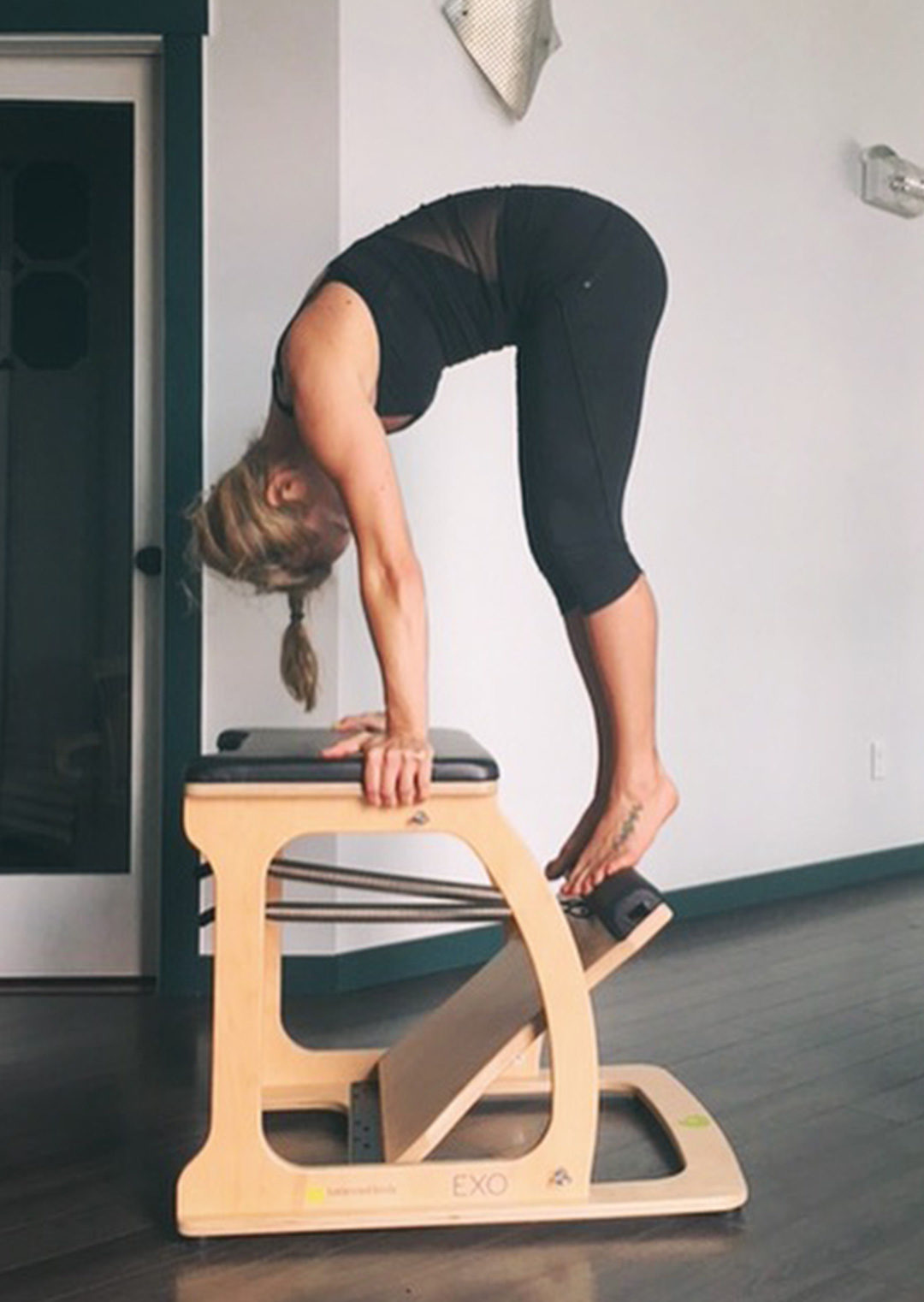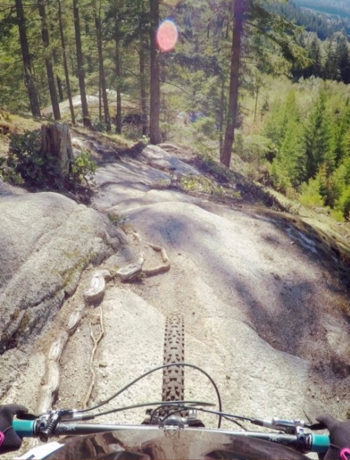What to do when your melon gets whacked
This summer an unexpected waterskiing accident left me with severe whiplash, five stitches in the back of my skull, a compressed occipital nerve, a puncture in my neck that nearly hit an artery, a punctured eardrum and a pretty nasty concussion.
Concussions suck. They demand a lengthy recovery, prolonged down time and they affect many aspects of your life including mobility, career, relationships and finances. Mild traumatic brain injuries (also called TBI’s) an invisible injury that has no fixed timeline for recovery—Now, before you get too meloncholy, I’ve got some tips that helped me get through my concussion in about four weeks.
Post-Concussion Symptoms
I’ve had a few concussions in my life, and the two most recent ones had the same sensation at the time of the accident— Very bright blinding sunlight and an instant sleepy feeling. Many people assume they don’t have a concussion if they haven’t lost consciousness, however, you don’t have to be knocked out to get concussed.
Head injuries and concussions can be very scary, but if you catch the signs early and do all of the right things, the majority of symptoms will resolve within about two weeks, and you’ll often be back to normal in a month. Here are some signs of concussion:
- Headaches
- Dizziness
- Vomiting
- Fatigue
- Irritability
- Anxiety
- Insomnia
- Loss of concentration and memory
- Ringing in the ears
- Blurry vision
- Noise and light sensitivity
- Rarely, decreases in taste and smell
Concussion Recovery Tips
Here’s a timeline and strategy for how I recovered from the majority of my concussion symptoms within four weeks.
If you suspect you’ve had a concussion, do not finish your sport or activity. Immediate rest can help expedite recovery. In a recent study, athletes who continued to play with a concussion required nearly twice as long to recover than those who didn’t stop activity.
Don’t panic, stay positive
Most athletes, especially elite level athletes, experience injury during their athletic careers. And when we are so active it can be very hard to allow ourselves to rest and deal with the mental side of recovery. Go easy on yourself, it’s a setback, but chances are you’ll be back faster thank you know. Keep your outlook more positive than negative and you’ll thrive in your recovery.
Days 1–4 Sleep, Rest, Darkness
The first few days are going to be rough, but don’t panic—it WILL get better. Give yourself the rest your brain needs and don’t attempt to do any physical or mental tasks. Take this seriously. A recent study by Children’s Hospital Boston concluded that limiting cognitive strain after a concussion increases the speed of recovery by up to 500%!
- Take medication, if required
- Sleep (So critical. Ignoring your symptoms and trying to “tough it out” makes symptoms worse.)
- Avoid stress (Work, family, friends and commitments can wait!)
- Turn your phone off (Looking at screens will kill your recovery)
- Do not watch TV, play games, read or go outside (So boring, but SO worth it!)
- Do not drive! (At this stage your worse than an old granny behind the wheel)
- Put some earplugs in (You’ll be very sensitive to sounds)
- Make your room dark (as dark as possible)
- Have your H20 bottle handy (drink lots)
- Avoid alcohol, caffeine and other stimulants
- Get help from friends or family (Accelerate recovery by getting help with small tasks and meals)
- Ask a friend to pickup Krill Oil capsules ( the brain’s cell wall is, in part, composed of omega-3 fatty acids. Krill Oil will help to trigger the brain’s healing process after traumatic brain injury.)
- Add MCT Oil to your meals (Drizzle on salad dressings, breakfast, in decaf coffee etc. MCT’s create keytones, and studies have shown the effectiveness of the ketogenic diet in treating TBI in the acute phase of injury.)
- Eat healthy foods—you need nutrients to heal yourself now more than ever. (Dark leafy greens, avocado, nuts, organic proteins, healthy fats, colourful fruits & veggies)
- Snuggle with your dog (Get some happy healing endorphins!)
Days 4–8 Rest your brain
In addition to physical rest after concussion, it’s also important to get cognitive rest—known as brain rest. You might be starting to feel a little better, but you’re not out of the woods yet. Take ‘er easy!
At around day seven of my recovery, I spent a lot of time lying on my yoga mat listening to podcasts. It was a great way to pass the time without going crazy! I decided that I could use this opportunity to learn, so that’s what I did…there’s a lot of fascinating information out there to take advantage of.
- Continue periods of rest throughout the day (You’re going to start feeling a little better, but hold back.)
- Turn your phone to “Do Not Disturb” (Only answer critical phone calls and do not text message.)
- Turn your phone brightness down (Use night mode and avoid bright screens)
- Avoid computers, phone, TV, reading (Stimulating your brain will set you back.)
- Do not drive! (You’re getting better, but now you’re like a granny who needs to re-certify)
- Put your shades on (If you’re outside or in a bright environment, wear your sunglasses.)
- Limit social interaction (Too much stimulation is going to aggravate your symptoms.)
- Avoid alcohol, caffeine and other stimulants
- Take Epsom Salt baths (Epsom contains magnesium. When a concussion occurs, magnesium levels in the brain drop. Magnesium levels are important because many energy producing enzymes require magnesium to do their job. If energy levels are low in the brain, the recovery process may take longer.)
- Meditate (Cognitive rest is critical. Meditation allows you to rest your brain and allow it to heal. I recommend HEADSPACE APP for a modern and simple guided meditation. I found this particularly effective during an Epsom bath.
- Start Physiotherapy (Get assessed by a physio who works with concussion patients. I found Karina Steinberg very helpful! karinasteinbergphysio.com. Neck trauma can attribute to a variety of concussion-like symptoms, both physical and cognitive, so it’s in your best interest to diagnose the exact issues.)
- Listen to Audiobooks & Podcasts (I found this to not bother my symptoms and helped pass the time.)
Days 8–30 Exercise & Healing
In this phase of my recovery, my physio suggested I start upping my activity level. I did safe activites such as; easy rides on my stationary bike, played my guitar for short periods of time and worked with my pilates trainer, gradually increasing time and difficulty of exercises.
- Work with your physiotherapist (Physio will have you perform balance, dexterity, and mobility tests.)
- Try some short walks (Go slow & easy, up the street and monitor your symptoms)
- Take some Private Pilates lessons (Pilates is a fantastic method for training balance, coordination and strength. During my rehab, I started very easy and gradually worked up to more complicated movements. This was a great gauge of my progress. coreintentions.com )
- Listen to Audiobooks & Podcasts (I found this to not bother my symptoms and helped pass the time.)
- Get some IMS from your physio (This gave me incredible relief!)
- Ride a stationary bike (If you have a home trainer IDEAL. Begin with 20min per day, keeping your heart rate <100bpm) Monitor your symptoms.)
- Avoid risky activity (The brain is at increased risk of injury while recovering from a concussion, and more susceptible to re-injury after recovery. A second concussion may be caused by less force and may require a longer recovery.)
- Avoid alcohol, caffeine and other stimulants
- Meditate & Continue Epsom Baths (Keep giving yourself downtime and periods of brain rest)
Days 21–30 Back to work, social activity & screen time
In this phase of my recovery I started using my computer for short periods of time, gradually increasing and monitoring my symptoms. The key is awareness. Everyone is different, so you need to gauge how you’re feeling and be diligent about taking breaks and not overdoing it.
- Return to work gradually (Break up your day into chunks and ensure downtime.)
- Consult with family or friends when making important decisions (Try to avoid mentally taxing decisions.)
- Do not neglect nutrition & rest (Speed up your healing by fueling your brain and body.)
- Avoid risky activity (You still need to be very careful!)
- Return to sport gradually (Instead of tackling your usual bike trails, do a mellow flat ride. You may feel normal, but you’re not.)
- Spend time with friends (Go for coffee and walks with friends, increase social stimulation)
- Monitor your screen time (Don’t overdo it. Start with short intervals.)
- Avoid alcohol, caffeine and other stimulants
Conclusion
Don’t tough it out. There is no shame in taking it slow. It will be a shame however, if you damage yourself permanently by hiding your injuries or ignoring the process. I know a few people who didn’t get rest and didn’t put time into a quality recovery and they are still suffering symptoms after several years.
Think of your brain like a bad cut; if you don’t treat it, it will not heal properly, can get infected or leave a nasty scar.
It’s been a month and I’m still not quite 100%, but my physiotherapist said I’ve made amazing progress. I’m so grateful that I chose to do all of the recommended things at the beginning because it means I’ll be back doing my favourite things much sooner!
Read about my waterskiing accident here:
Zesty Setbacks: When life smacks you upside the head with a lemon









2 Comments
Jeff Nichols
September 24, 2017 at 4:59 pmHow did you first become aware of this great concussion protocol?
Rachelle Hynes
September 24, 2017 at 5:06 pmHi Jeff!
Thanks for stopping by my website My process was in part suggestions from the hospital, my physiotherapist and some of my own research. The specific things such as Pilates, was my physio and pilates trainer working on a program together on what exercises and progress would be ideal for me.
My process was in part suggestions from the hospital, my physiotherapist and some of my own research. The specific things such as Pilates, was my physio and pilates trainer working on a program together on what exercises and progress would be ideal for me.
Everyone is different of course, but this worked for me and I hope it will for others!
Thanks again,